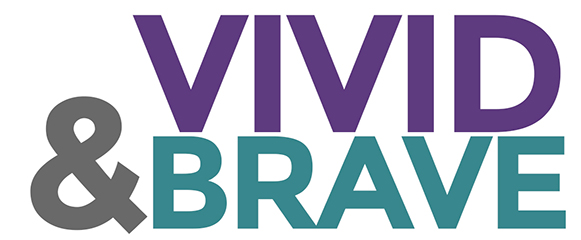Driving home from school this week, my two were in the back when my youngest, Murmel*, piped up.
“Mom, I wish I didn’t look out my window just now. I saw a man writing a BAD WORD with paint on the ground.”
For the purposes of this story, I feel the need to point out that we’re in the dead of winter here in Calgary, and you can’t even SEE the ground, nevermind spray paint it with bad words. Murmel has an active imagination. What she doesn’t have is an inside voice, so this was all basically shouted within the confines of our SUV.
The Button*, freshly 8, chimed in.
“What bad word?”
Murmel: “The WORST bad word.”
The Button: “You mean F – U – C – K?” (Is it wrong that I had a moment of pride at his spelling skills, mixed with mortification at the word he had just so easily spelled?)
Murmel: “No! It started out D – A -….. What is the WORST bad word that starts with D – A?”
The Button: “No word is the worst word. It depends on how you say it.”
The conversation continued (one of my favourite things in the world to listen to is when they are talking and getting along. They sound like mini adult versions of themselves) but I found myself thinking about that little statement for the rest of the drive home.
No word is the worst word. It depends on how you say it.
I swear like a sailor on a bender who never learned the rest of the English language. Curse words spill out of my mouth before I realize they’ve escaped. I have been this way forever, and of course, when my kids started repeating things back to me, after that initial burst of hilarity that comes from an 18 month old cussing, I was mortified and hoped that I could curb it. I tried replacing them with alternatives. Frick, fudge, freak. It didn’t matter. If I said “Freakin’!” my kids still looked at me with those tiny perfect faces, admonishing me for using a “bad word”. Because it wasn’t about the word. It was about the way it came out and what it really meant. Anger or frustration or disgust are the same in tone no matter what word you use. And that’s what matters.
So the exercise is not in using new words for the bad ones. It’s in changing the tone of the way we speak to ourselves and each other. And that applies to more than just curse words.
Consider the way you talk to yourself or about yourself. Many women refer to themselves as bitches as though it’s a point of pride. What are we masking when we do that? What do we really mean about ourselves? If we mean strong, we should say strong. If we mean smart, we should say smart. If we mean unfriendly, or difficult, or unkind, we should stop and consider why we’re so damn proud of that. (I am VERY guilty of this by the way. Especially if a man calls me a bitch.) What about something like curvy? I’ve been known to use it more as a slur against myself, as a nicer way of saying “fat”, rather than as a way to love and embrace the shape of my body.
What words do you need to drop from your vocabulary all together? If you’ve prettied up the “F” word, or something like it, in order to keep using it in mixed company, maybe it’s time to start focusing on how you’re talking, instead of what you’re saying.
*In utero nicknames. Of course.
Stephanie Ostermann
I’m a communicator. That’s a PC way of saying I like to talk, but I also spend a lot of my time listening, and over the years, I’ve developed a sense for subtext – how one or two words can change your entire message, what people are really trying to say and how to weave the varied layers of your story into one cohesive brand message that your clients fall in love with.
When I'm not acting as editor in chief for Vivid & Brave, you can find me geeking out over words here.
Latest posts by Stephanie Ostermann (see all)
- Inventing Insecurities | No, I Don’t “Need” Eye Cream - February 24, 2017
- You Don’t Have to Be Friends With Your Ex (Or His New Wife) - November 23, 2016
- Grief & Landlines - September 20, 2016




